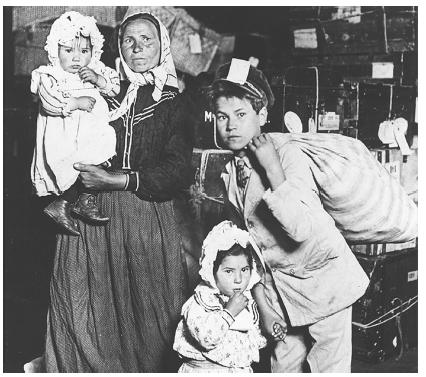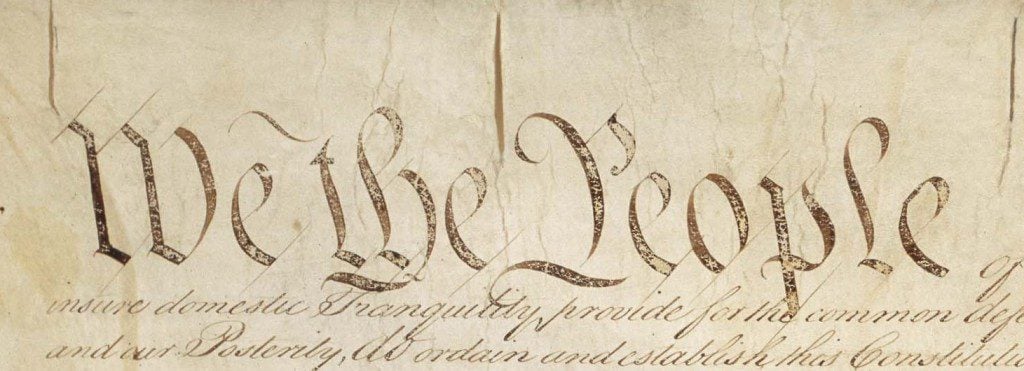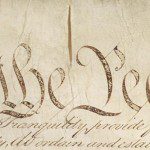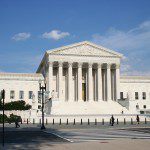
I have a stake in this, of course. My youngest son was born in Germany.
He meets the rules for citizenship — that is, I an an American citizen and had lived in the US for the required minimum of five years including two after age 14 — and, in fact, has an American Consular Record of Birth as well as a German birth certificate.
Is he, in fact, a natural-born citizen? I generally tend to think the answer is “yes” — that is, that there are two types of citizen, and any citizen who never needed to be naturalized by virtue of having been a citizen at birth, is a natural-born citizen.
But I don’t think this is a view for which there’s a firm consensus.
In 2008, after all, we had the first “natural born citizen” controversy.
You know: was John McCain a Natural Born Citizen? He was born overseas, to American-citizen parents. Specificially, the “overseas” was the Panama Canal Zone, at the time the “property” of the United States but not with the same status as a “regular” state, commonwealth, or territory.
FactCheck dot org said, at the time (February 25, 2008), “duh, of course.”
More precisely,
McCain is a natural-born citizen, even though he was not born within this country’s borders, since his parents were citizens at the time of his birth.
Citing 1790 Congressional legislation:
And the children of citizens of the United States, that may be born beyond sea, or out of the limits of the United States, shall be considered as natural born citizens.
But it wasn’t actually that straightforward.
At about the same time, NBC News featured an in-depth article on the question.
But is John McCain a natural born citizen? The Constitution does not define the term further, and legal scholars say the notes of the Constitution’s drafters shed little light on what they meant. It seems clear only that the founders wanted to make certain that whoever was president would be loyal to the U.S. alone and not to some other country. But the term “natural born citizen,” many scholars say, was not in common use at the time the Constitution was written.
Sen. McCain’s supporters draw some comfort from a law passed in 1790 by the first Congress. It provided that the children of US citizens born outside the US “shall be considered as natural born citizens.” The law is no longer in effect, but it provides some guidance on what the founders had in mind at the time of the Constitution. . . .
In 1964, the Supreme Court seemed to say, without deciding, that “natural born” meant born inside the United States. In an opinion on an unrelated issue, the court observed, “The rights of citizenship of the native born and of the naturalized person are of the same dignity and are coextensive. The only difference drawn by the Constitution is that only the ‘natural born’ citizen is eligible to be President.” But that language is not legally binding, and the Supreme Court has never ruled on what “natural born” means. . . .
Besides, many legal scholars say the Canal Zone never was sovereign U.S. territory. In a February 1978 speech to the nation on the Panama Canal Treaty, heavily vetted by government lawyers, President Carter said, “We have never had sovereignty over it. We have only had the right to use it. The US Supreme Court and previous American presidents have repeatedly acknowledged the sovereignty of Panama over the Canal Zone.”
Much later, in 2016, the Washington Post revisited the question, reminding readers that in May of 2008, the Senate had passed a resolution stating that McCain was indeed a natural-born citizen, but that resolution was nonbinding and fairly useless to the wider question, stating only that McCain himself was a natural born citizen, and justifying that statement both because his parents were American citizens and because his father was serving his country in the military. Other defenses included the additional claim that the Canal Zone “counted” as well. Piling on these justifications means that the issue was not, is indeed still not settled at all — is there a third class of citizens, those who were citizens at birth but not “natural born”? And, if so, who are they?
Because, yes, there is a claim circulating that Kamala Harris is not a natural-born citizen, not because her parents were immigrants (as the retellings generally claim), but because they were not permanent residents at the time but only here on student visas. I had rambled about the question of birthright citizenship before — in particular with respect to the question of birth tourism and whether the amendment could be interpreted, by its tenses, to require ongoing residence rather than merely presence on American soil at the time of birth.
And I’m still inclined to think that, if ever there was a circumstance in which we could reasonably say, “the Founders didn’t envision the circumstances we now find ourselves in,” this is it. Illegal immigration? Student visas? Birth tourism?
But in the meantime, we find ourselves with no actual answer on the question of the definition of “natural born citizen.” Should Congress define this by legislation, not merely in the form of a “resolution” but an explicit definition? Or does Congress even have the power to legislate an interpretation of the constitution? If they don’t, then, yes, we need a constitutional amendment — and we shouldn’t freak out that somehow amendments are sacred and holy and should never be contemplated except for the most serious of reasons.
Here’s my text:
“Natural-born citizen,” for the purpose of eligibility for the presidency or other purposes, shall mean any individual who was defined a citizen at birth, that is, without the necessity of naturalization.
Any individual born within the borders of the United States, including its states, territories, and commonwealths, shall be defined a citizen at birth, provided that at least one parent was a citizen or a permanent resident as defined by law at the time of birth. Congress shall have the power to legislate other circumstances providing for automatic citizenship, and to define the citizenship provisions for geographical areas with other forms of association to the United States.
In other words:
The Constitution would define “natural-born citizen” expansively.
Separately, the Constitution would set minimum standards for the definition of “citizen” more generally speaking, but would enable Congress to expand the definition beyond this minimum. There should probably be a restriction that Congress can’t take away citizenship from a whole group of people previously presumed to posses it, but I haven’t attempted to write that in Constitution-ese.
And having said all that:
no, it isn’t racist to discuss the topic.
This is a longstanding issue which should proactively be resolved rather than, each time it comes up, putting up a fuss that it’s somehow racist (or other “-ist,” e.g., anti-children-of-military-personnel) or partisan to raise the question. And the fact that we can’t discuss and fix this demonstrates our brokenness as a country.
By Lewis W. Hine(Life time: 1874-1940) – Original publication: Photo-study Immediate source: Brooklyn Museum, Public Domain, https://commons.wikimedia.org/w/index.php?curid=51292180 The caption of the uncropped version says “lost baggage is the cause of their worried expressions” which I find fascinating because it counters the narrative of “immigrants arrived with nothing other than the shirts on their backs.”












